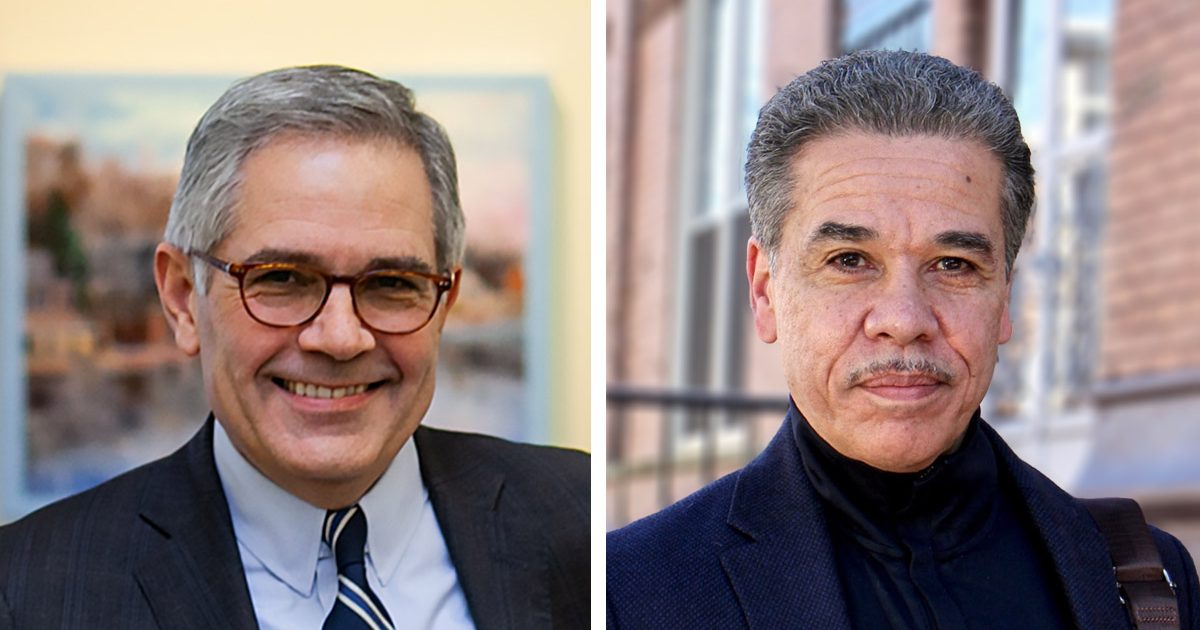For citizen safety, Krasner must go
The job of the district attorney is to protect the public, prosecute the accused and administer justice.
Larry Krasner has failed on the first two, and has a questionable record on the third. He should be fired.

By his own omission during his last campaign, protecting the public and prosecuting the accused were not high on his agenda, if they were on it at all.
He did promise “reform” of the criminal justice system, to empty the prisons and abolish cash bail. His re-election slogan is, “Promises made, promises kept.” (Very odd he would borrow a slogan from Donald J. Trump.)
In those promises, by my count, he is 1 for 3.
He did “reform” criminal justice by firing experienced prosecutors (such as Carlos Vega, his opponent in the May 18 primary), hiring a bunch of inexperienced attorneys who had trouble passing the bar exam, declining prosecution on 25 crimes (including shoplifting under $500, identity theft, forgery, and drunk driving), and letting gun prosecutions plummet, and seeking the softest charges whenever possible and releasing suspects who proved to be extremely dangerous.
That’s Krasner’s “good” news.
The prison population has indeed dropped dramatically in the past five years, but that began in 2015 when Michael Nutter was mayor, before Krasner was elected. All he did was to keep his foot on the gas pedal of a car already at highway speed.
As to abolishing cash bail, well, that’s a story in itself.
He did start off by releasing suspects more or less willy-nilly, but with the arrival of the pandemic, he changed his policy.
Suddenly, he was asking $999,999 bail on a wide variety of crimes — not just violent felonies — as I reported last month.
Why he did that is an open question. Answers are hard to come by as his office routinely does not even acknowledge questions submitted by non supine journalists such as myself and Ralph Cipriano, whose BigTrial.net is perhaps the best compendium of Krasner’s failures and faults.
The U-turn on bail was so profound it drove the Philadelphia Bail Fund, a one-time ally, into publicly attacking Krasner.
What drove the change in policy?
My guess? To fight against the blowback from critics who accused Krasner of turning loose dangerous people, not fully prosecuting others, failing to keep in touch with victims’ families, and showing contempt for anyone who questions his methods.
Who can forget the racist comment aimed at white protestors by his director of communications, the too-woke Jane Roh, a former reporter who turned in her principles along with her press card when she joined Krasner’s staff.
Under a growing barrage of complaints from citizens about being “too soft” on crime, Krasner cooked up the million-dollar bail scheme in an attempt to shift blame to the Arraignment Court for “reducing bail” which he set unbelievably high.
He also promised to reign in civil asset forfeiture, but the most recent 2019 report showed cash seizures by the D.A.’s office increased to $1.5 million from the $1.3 million the year before.
He’s a gem, and one of a handful of prosecutors — such as in New York, Chicago, Los Angeles, St. Louis — who are testing out their progressive theories as crime skyrockets. I mean, they don’t even talk about driving crime down.
With him as D.A., gun crimes are going crazy and homicides are on a track to set a record this year. Have you heard him screaming about the tide of blood and what he plans to do about it? Don’t strain yourself. Who does he attack? Cops.
This election is not just about Krasner. It is also about whether the people want crazy public defenders pretending to be prosecutors. This is like a game from Alice in Wonderland, except for the dead bodies of victims littering our streets. There is a reason he is not supported by the Democratic Party, which is very unusual for an incumbent.
Most of Krasner’s financial support comes from outside the city, from people who don’t have to suffer the consequences of his dangerous policies. Vega’s support comes almost entirely from local supporters.
This election is not about “reform,” because Vega also wants to reduce the prison population by not jailing nonviolent offenders, and by offering actual low bail to those who qualify.
He would continue the conviction review unit, which has been a Krasner success. Krasner has exonerated 19 wrongfully convicted people and I give him credit for that. Vega told me he would expand it, and improve it by getting rid of Krasner’s woke but inexperienced attorneys.
The key difference between the two men is that Vega takes a personal interest in locking up bad people, protecting the public and sheltering the families of victims. He aches for them, as I reported in an earlier piece on Vega.
His views are traditionally liberal, which is what you expect in Philadelphia from a life-long Democrat. They are spelled out simply on his website.
They are well within the lines of what we expect from law enforcement. They are not freaking crazy.
He would use the death penalty for “extreme circumstances” as long as it were legal (Krasner never took it off the table), and would have no “minimum amount” of shoplifting before prosecution. “You’re not supposed to steal,” he says. “It is destroying neighborhoods.”
Krasner’s decision to not prosecute prostitutes has had a negative effect on them, Vega says. If they are not taken into custody, they can’t be directed toward services that can help free them from that life. The same is true for addicts, who can’t be helped unless they are taken into custody. Vega’s aim is to help, not punish.
Krasner has well-intended ideas that have serious, negative practical consequences.
He must be sent back to the defense table, where he belongs.
Carlos Vega, who is for the people, should be Philadelphia’s next district attorney.
The men debate Wednesday night at 7 on NBC10 and KYWNewsRadio.



